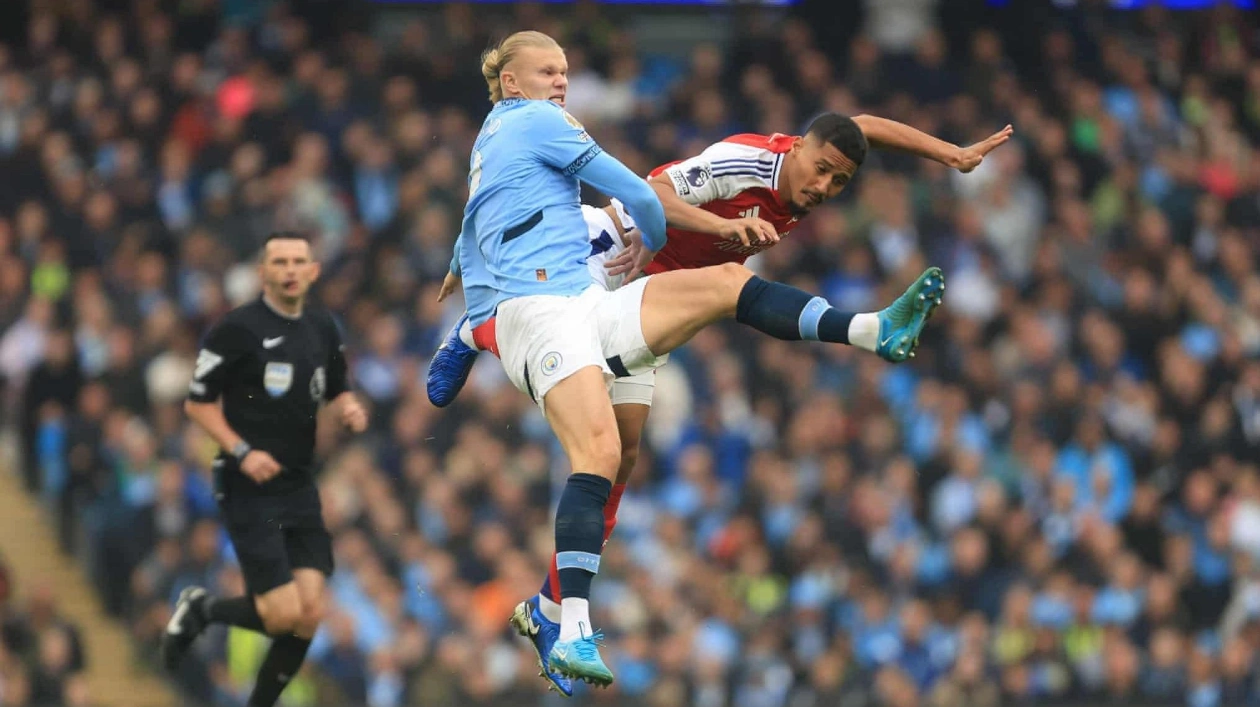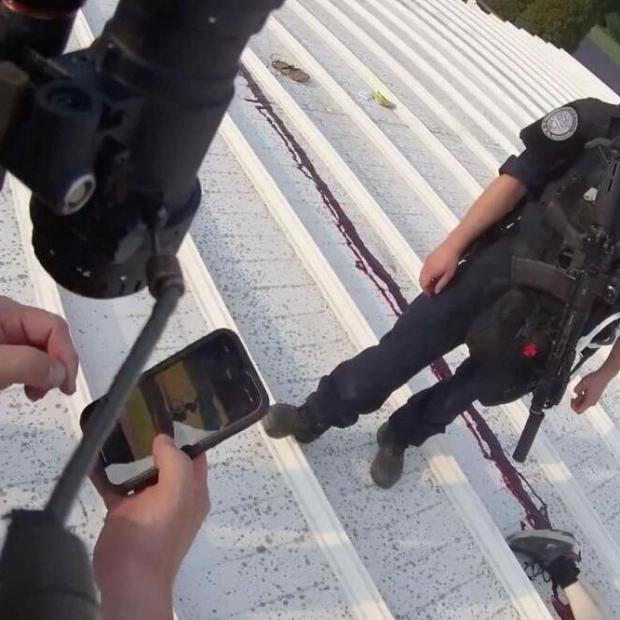Let’s address this head-on. Michael Oliver, linked to the United Arab Emirates, is assigned to referee Manchester City’s pivotal match just days after a figure resembling Keir Starmer is spotted in an Arsenal box, amidst UK-UAE trade negotiations. We’re in a surreal realm where even mirrors are made of mirrors, possibly crafted in Nyon and likely by satanists. Meanwhile, VAR’s oversight on Erling Haaland’s ball-throwing incident (Brazil recently banned the use of X) coincides with the UK’s covert EU re-entry strategy. Do the math, folks.
Some of us foresaw this when Jarred Gillett, an Australian, was appointed to referee the north London derby against Spurs managed by an Australian, whose government recently signed an economic partnership with Abu Dhabi. And let’s not forget, Adolf Hitler was also Australian. The madness is alluring, fostering a community vibe and giving life a semblance of narrative and shape, despite requiring contradictory beliefs and glossing over inconvenient facts.
If Oliver is perceived as a Sky Blue agent and Haaland’s ball-throwing is deemed dopey, the only undeniably poor decision in Manchester City versus Arsenal was Oliver calling Kyle Walker over, only to watch Arsenal score a quick-thinking goal through the vacated space. This sheer clumsiness is akin to being stopped by the police and then receiving a parking ticket.
Two real-life issues emerge from this. First, feeling cheated often stems from factual, albeit unappealing, grounds. This path often excuses actual incompetence and stupidity. Sunday’s game exemplifies this with two terrible decisions. English referees should not take paid employment from a state that owns a club they officiate. This is not about actual corruption but the appearance of it, which is mind-bogglingly careless. Howard Webb and others should resign for allowing this.
The Premier League’s allowance of government-owned clubs invites this fraying. Always, in football governance, incompetence should be the first assumption. Could these people organize an international conspiracy without messing up? The real issue lost in the rage is that this was a good, engrossing game of football. Arsenal showed great fortitude and skill to recover from an early deficit against the best team on the planet and nearly won despite losing a player.
City’s salvaging of a point showcased genuine champion spirit and heartfelt celebrations, despite the moaning about “dark arts” after drawing with 10 men. This is a compliment. Players know. Arsenal’s defensive prowess has become an issue, with good defending being cast as controversial or nihilistic. True, Arsenal celebrate defending more than any other team, but it’s odd to assume defending isn’t the foundation of elite football.
Arsenal’s defending on Sunday was beautiful, every part functioning in concert, giving the rest of the game substance and making attacking moments robust. Pep Guardiola, who values control and possession as defensive tools, will admire Arsenal’s job at the Etihad. Arsenal’s reliance on Martin Ødegaard isn’t a flaw; sport involves managing weak spots. Arsenal’s defensive strength is evident with 11 clean sheets in their last 14 Premier League games.
Other aspects were commendable. Gabriel Martinelli’s tactic to disconcert Walker was smart play. Jurriën Timber and Kai Havertz were exceptional. Arsenal also highlighted City’s unresolved issues early in the season. Walker’s performance and City’s lack of clean sheets at home are concerns. Guardiola excels at on-the-fly adjustments, but the lengthy absence of Rodri due to a serious knee injury will require adjustments.
The upcoming games aren’t the most testing, but City’s title run will likely be decided by a challenging spell from 25 January. Sunday’s match showed Arsenal’s determination to chase City to the line. The Premier League is indeed hostage to interests, lobbying, idiocy, and incompetence. For now, we can enjoy an angry, accusatory, defensively venal afternoon of parity.






